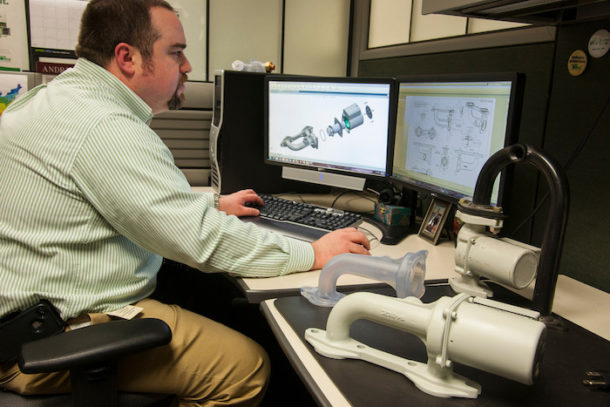The construction industry is dynamic, fast-paced, and challenging. You’ll need to stay on your game to succeed as a business owner. Construction contracting generally involves working with clients to complete construction projects and sometimes as a sub-contractor helping to fill a smaller niche within a larger job. As such, you may have limited control over Read more
Whats New

The construction industry is dynamic, fast-paced, and challenging. You’ll need to stay on your game to succeed as a business owner. Construction contracting generally involves working with clients to complete construction projects and sometimes as a sub-contractor helping to fill a smaller niche within a larger job.
As such, you may have limited control over the final scope of the project and how much money you stand to make. Without the right coverage in place, this could leave your business vulnerable. Contracting is a risky business, which is why contractors need protection.

1. Have the Right Insurance in Place
Contractors need to get the right insurance coverage in place before they start working on a project. Without insurance, your business will pay for damages and injuries during work. Make sure you have general liability insurance that covers your business’s operations.
If you are involved in building a new home, you’ll want construction insurance. Homeowners’ insurance will not cover any contractors working on your property. If you own heavy equipment, get the proper insurance for it.
You should also have workers’ compensation insurance and surety bond insurance. This coverage ensures ethical business practices and compliance with building codes. You’ll want to find an insurance company that specializes in contractor insurance.
2. Stay Current on Training and Education
You should seek out training and education opportunities that will help you to improve your business. Don’t just focus on traditional education, but also on staying up to date on the latest technology and best practices.
You can do this by joining industry trade associations. These associations will help you stay connected with other contractors and the latest information; you should also consider taking classes and attending workshops. There are many training and education opportunities available to help build your skills.
Check with your state’s licensing board to see if they offer any training programs. Training and education opportunities can help you improve your time management skills, paperwork processes, and client communication skills.
3. Run a Background Check on Potential Employees
Workers play a critical role in the success of your contracting business. You must maintain a safe work environment; it starts with hiring the best possible employees. You can screen potential employees by conducting a background check.
It will help you gauge an applicant’s character and potential risk to your business. It can also help you avoid hiring somebody who has questionable work history. Make sure to conduct thorough and accurate background checks.
Background check services are available to help you with this process. Also, talk to your insurance company about any coverage they offer for hiring employees. Some insurance companies will provide coverage against negligent hiring.
4. Maintain a Strong Payment System
Contractors rely on getting paid for their work. A strong payment system is essential to keeping cash flowing smoothly. You should have a payment system in place before you start working on a project. Some contractors prefer a payment system that is a percentage of the project’s cost.
Other contractors prefer a fixed-price system. Before you choose a payment method, you need to consider how much experience and expertise you have working on that particular type of project. You should work with your client to establish a payment plan.
You should also create a payment plan that is realistic for your business. Take into account how much work is left to be completed, any costs involved in the project, your employees’ time, and other expenses.
5. Utilize Technology to Stay Protected
Protecting your data, equipment and employees goes beyond a strong payment system. Contractors can use technology to stay protected. Make sure to have a data backup system that protects your information during a disaster.
Modern contracting involves technology, so make sure all your hardware and software are up to date. It includes computers, software, cell phones, and other devices used in your business.
It will help decrease frustration and provide a better experience for your clients. Also, using technology in construction has made it much easier for contractors to stay in contact with their clients.
Conclusion
Much has changed in the construction industry over the years. Technology, insurance, and training are just a few examples. Fortunately, all of these changes have the same underlying theme; better protection for all parties involved. As a contractor, it is important to stay protected and keep up-to-date on industry trends to ensure the longevity of your business.

The business landscape is changing. Long gone are the days of filing cabinets bulging with documents and noisy modems. We are living in the future, and we are constantly seeing new technologies and working practices that are reshaping organizations worldwide. One development that has been in use for several years, but is still growing in Read more
The business landscape is changing. Long gone are the days of filing cabinets bulging with documents and noisy modems. We are living in the future, and we are constantly seeing new technologies and working practices that are reshaping organizations worldwide.
One development that has been in use for several years, but is still growing in popularity, is the cloud. Cloud computing refers to technology infrastructure that is provided over the internet, reducing the need for physical, local storage. It’s traditional for businesses to store all their data on-premises within their computer hardware. But this is no longer the most efficient method of doing things, not to mention the added level of risk it can pose.
Many business owners are realizing the benefits of moving their infrastructure to the cloud, eradicating the reliance on local storage and having all their information easily accessible from any device, anywhere in the world.
If you are considering making such a move, you may be unsure about the benefits of such a drastic decision. But there are so many great reasons to move your business to the cloud. To help you make up your mind, here are a few of the most significant benefits.

Cost Savings
Perhaps the most important benefit of moving to the cloud is the financial implications. Computer equipment is expensive, and if you’re relying on physical hardware and IT systems, you are spending a lot more than necessary. A cloud computing service, on the other hand, allows you to dispense with your maintenance overheads and put your dedicated IT team to better use. The service generally involves a small monthly or annual fee, but this will allow you to benefit from the latest software and technology infrastructure at an affordable rate.
Flexibility
There is no one-size-fits-all package when it comes to cloud computing. Your specific solution will depend on a range of factors, including the size of your business, your needs, your budget, and your current infrastructure. This means it is possible to find a solution tailored to your precise specifications, aligned with your goals and strategies. For example, you can choose between Infrastructure-as-aService (IaaS), whereby the provider manages the cloud infrastructure, while you manage your platforms and software, or Software-as-a-Service (SaaS), where the provider manages the software for you, and you just pay a subscription to use it. You can also choose between public and private cloud, as well as a wide range of additional functions and features. There are a huge range of platforms to choose from, and if you’re unsure which direction to go in, a service such as Amazon Web Services Consulting can help you to make the move.
Increased Security
The cloud is by far the safest place to store all of your data. If you still keep all your sensitive customer information on-premises, anything could happen to it. Your computer systems could malfunction, or fall prey to a malicious cyber attack. Perhaps someone forgets to take a backup one day, or your office is broken into and your hardware is stolen. There could even be a serious fire or flood that sweeps through your office and destroys everything. There is no excuse in this day and age for not taking all steps available to enhance your company’s information security. Billions of dollars are invested into cloud cybersecurity, and it is overseen by some of the most advanced experts in the world. Your data is 100% safe when you move it online, and whatever happens to your physical premises, you can guarantee it will still be up there, accessible whenever you need it.
These are just a few of the myriad benefits companies can experience by moving to the cloud. What other advantages have we missed? Let us know your thoughts in the comments!

One of the most frequent issues with domestic plumbing is inadequate water pressure, regardless of whether you use city water or well water. Old pipes and insufficient well water flow are two factors that may contribute to a decline in water pressure in residence. Several solutions exist depending on the issue’s root, but a constant Read more
One of the most frequent issues with domestic plumbing is inadequate water pressure, regardless of whether you use city water or well water. Old pipes and insufficient well water flow are two factors that may contribute to a decline in water pressure in residence. Several solutions exist depending on the issue’s root, but a constant pressure system well can increase your water pressure to the desired levels.
Let’s examine in greater detail what a constant pressure system for wells is and how it might benefit you.
What Is A Constant Pressure System?
A constant pressure system is a device that helps increase the pressure of the water where you install it. A constant pressure system needs a pressure tank, a pump, and a pressure switch or sensor, just like a standard pump system. The pressure sensor notifies the pump control panel when there is a change in system pressure. The pump is then instructed to operate at a pace necessary to maintain optimal pressure and volume by a controller. Depending on the particular system, the pressure setting can be changed at either the pressure sensor or the motor controller.

Conventional Water System Vs. Constant Pressure System
In contrast to a conventional system, the pressure tank in a constant pressure system is often significantly smaller. It only holds a tiny amount of water and primarily serves as a pressure buffer. Similar to those in a submersible system, the pumps utilized here are constant-pressure. The distinction is that the pump’s motor operates at varying speeds based on water demand. A variable frequency motor controller regulates the speed of the motor.
How Can A Constant Pressure System Help You
A constant pressure system can help you in the following ways:
It Will Help You Save Space, Energy, And Money
Considering the space you have in your home, and these tanks can be made to any size, you may save a ton of room in your home by using constant-pressure water systems, which require significantly smaller tanks than conventional systems. You will only occupy more space than necessary in this approach.
A system with constant pressure will aid in energy conservation. Powering your home’s appliances requires less energy since it enables them to operate more effectively.
Additionally, the speed of the pump is determined by the water demand in your home, so it will operate more efficiently during months when you use less water than usual. You may experience a decrease in your energy costs, and as a result, saving you money.
It Can Be Useful In Times Of High Water Demand
When the level of water and pressure in the reservoir drop, a typical well pump will replenish the tank with water. When you turn on a faucet, run a load of laundry, flush a toilet, or shower, the pressure in your tank will decrease.
Your water pressure will decrease if you attempt to do more than one of these simultaneously with a regular pump.
The water level in your tank is kept constant by constant-pressure water systems. This will prevent pressure drops when using many water appliances at once. But you don’t have to worry about these issues, owing to the constant pressure water system.
It Creates An Efficient System
Constant pressure water systems will make your systems, particularly your water treatment system, operate more effectively. For water treatment systems, low water pressure is a significant barrier.
For them to function correctly, water softening or filtering systems need a particular amount of pressure. Water systems with constant pressure control the pressure at all times, assuring that it is adequate for these filters to function effectively.
Conclusion
Robust and reliable water pressure is crucial for everyday household activities and tasks. Your appliances will function as efficiently as ever with constant-pressure water systems, as you’ll always have high-quality water pressure.

Here Are Some Tips on Getting Started If you have a technical mind and aren’t sure what type of career to pursue, you’re in luck. Technical skills are among the most highly sought-after in today’s workplace. The king of all technical fields is, of course, engineering. Engineering jobs tend to be among the most stable Read more
Here Are Some Tips on Getting Started
If you have a technical mind and aren’t sure what type of career to pursue, you’re in luck. Technical skills are among the most highly sought-after in today’s workplace.
The king of all technical fields is, of course, engineering. Engineering jobs tend to be among the most stable and profitable out there, and if you can manage to land one, you can be confident that your skills will always be in demand.
If you’re still in high school (or even if you aren’t, but may be looking to switch jobs), talk to a job counselor or start reading up on the field. You might even want to start thinking about engineering specialties before you start out. If you visualize yourself in a particular type of role, you’ll be more likely to stick to the path of getting there.

Types of engineering jobs
The field of engineering is broken up into four major categories, with many more sub-specialties falling underneath them. The four major branches are the following:
Civil engineering
Civil engineers design and oversee infrastructure projects. This includes infrastructure of all sorts: roads, bridges, tunnels, sewage systems, and many other structures.
To become a civil engineer, you will first of all need a bachelor’s degree in the subject. For more advanced positions, a master’s degree or even a PhD may be required. Like all engineering specialties, strong math skills are essential. However, civil engineers are also often creative, as well. There is often an important design element to good infrastructure project, and the ability to think creatively in terms of space and layout is definitely an added advantage.
Mechanical engineering
A related field is mechanical engineering. Mechanical engineers work with machines of different sorts – engines, generators, even air conditioning and heating units. They work on all aspects of development, from design to manufacturing to implementation.
To become a mechanical engineer, you’ll need to complete coursework in materials science, design and automation, and engineering analysis, among other things.
Mechanical engineers become involved in a wide array of spheres, including aerospace, nanotechnology, ergonomics, and other fascinating areas. If you think this kind of career might be right for you, you should read up on the possibilities. There are even remote positions available on Jooble if you’re looking to work from home.
Chemical engineering
Another major direction in the field is chemical engineering. Chemical engineers work with raw materials of different sorts to produce chemicals, drugs, specialty foods, and many other kinds of products.
In order to become a chemical engineer, you will need to have a degree in the subject. Coursework includes such subjects as thermodynamics, petroleum engineering, industrial chemistry, and various other courses related to chemical processes.
If you have a mind for chemistry and want to take your career in a profitable direction, chemical engineering could be a great path for you.
Electrical engineering
Electrical engineers, as the name suggests, work with electricity. They work with electrical equipment of different sorts, including electrical motors, appliances, and other types of machinery. Even large-scale power grids fall under the realm of electrical engineering.
Coursework for a degree in the subject includes the study of electrical circuits, electromagnetic fields and waves, electronics, and other related subjects.
If you were the kind of kid that liked to fiddle with electronics and felt that you had a natural inclination for making them better, this could be the career path for you.
Once you’ve got the basics, look further
Even though you won’t need to declare a specialty in the first year of your degree program, it won’t hurt to read up on all the different things that engineers do. You might find yourself inspired by a particular subject and decide right away to move in that direction. Or you may be fascinated by different options and become excited to see where your initial studies will take you.
Engineers come in many different forms. You might love the water and decide that marine engineering is for you. You may have a knack for computers and decide to become a software engineer. The possibilities are manifold, and regardless of the direction you pursue, you’ll know that you’re entering one of the most prestigious and lucrative fields out there.
So, start reading up on the possibilities. Your dream job awaits!

Being a business owner is no easy feat. Not only do you have to wear many hats, but you also have to be good at a lot of different things. In the past, business owners could get by with being good at just one or two things. However, in today’s modern business world, it’s becoming Read more
Being a business owner is no easy feat. Not only do you have to wear many hats, but you also have to be good at a lot of different things. In the past, business owners could get by with being good at just one or two things. However, in today’s modern business world, it’s becoming increasingly important for business owners to be multi-skilled. Here are five reasons why:
The World Is Becoming More Competitive
There are more businesses competing for attention than ever before. This means that business owners need to have a competitive edge if they want their businesses to succeed. One way to gain a competitive edge is by being multi-skilled. When you’re able to do more than your competition, it makes you more attractive to potential customers and clients. For example, owners of new start-ups with hard skills like design and coding can be more successful if they have a good understanding of financial management and marketing. In addition, the multi-skilled owner has the ability to think about various business management aspects.

Technology Is Changing Rapidly
As technology continues to advance at a rapid pace, industries and businesses must constantly adapt to keep up with the latest advancements. This can result in major disruptions and shake-ups in the market as old methods become obsolete, and new innovations take their place. However, staying on top of these changes is crucial for success in today’s tech-driven world. In addition to affecting how we do business, rapidly advancing technology also significantly impacts our personal lives. From how we communicate with each other to how we consume entertainment, it seems like there are new advancements and updates every day. It can be overwhelming to try and keep up with it all, but embracing change and staying open to new ideas can lead to exciting opportunities for growth and development. This is what makes IT-outsourcing specialists so valuable. They have a range of unique skills that are constantly developing, ensuring that your business receives the newest forms of IT solutions at all times.
Customers Are More Demanding
Customers are becoming more demanding and expect more from businesses than ever before. They want businesses to be able to provide them with a great customer experience, which can only be achieved if business owners are multi-skilled. Being multi-skilled allows you to wear many hats and provides you with the ability to meet the needs of your customers. Knowing the technical aspects of a product or service is one thing; however, understanding how your customers perceive your product or service and how to communicate with them effectively is just as important. Even though communication is a soft skill, it is an important skill nonetheless.
Business Owners Are More Productive When They’re Multi-Skilled
Business owners are more productive when they’re multi-skilled because they’re able to take on multiple tasks and responsibilities. This allows businesses to get more done with fewer employees, which can save the business money in the long run. Running an efficient team with multi-skilled employees also allows for a smoother workflow and less downtime, increasing overall productivity.
Multi-Skilled Business Owners Can Solve Problems Better
Being a multi-skilled business owner makes you more efficient and allows you to tackle problems from different perspectives and come up with creative solutions. Additionally, having a broad range of skills can equip you with the ability to handle unexpected challenges that might arise in your business. Overall, being a multi-skilled business owner can make you better at problem-solving and give you an advantage in running your business successfully.
These are just a few of the many reasons why modern business owners need to be multi-skilled. If you’re not already multi-skilled, now is the time to start developing new skills. The benefits of being multi-skilled are too great to ignore!
